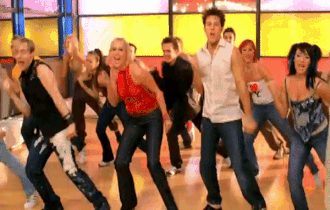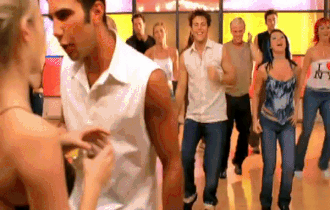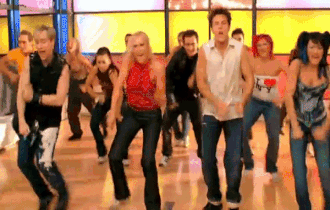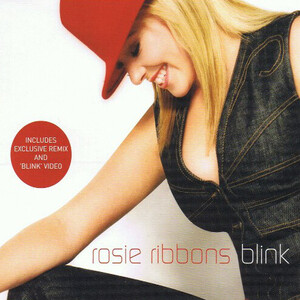Released: 16th October 2000
Writers: Mark Topham / Karl Twigg / Rita Campbell
Peak position: #1
Chart run: 1-5-10-16-24-30-39-47-58-62-75
As Steps geared up to release their third album, they delivered a brazen, disco-inspired tribute to Chic and earned themselves a long overdue accolade in the process.

It’s unclear when chart commentators stopped marvelling at the fact that Steps had made it so far. But certainly, no one could (or should) have been surprised by this point. Beyond having one of the best-selling singles ever under their belt, the key to their success was the unrelenting regularity with which the group deployed themselves. Between 1998 and 2001, there was never more than four months – usually less – that went by without a new release. And even though their album campaigns were distinct from one another, there was a lot of crossover with double-A sides introducing new material. Thus, Buzz had already been peppered with tracks – Better The Devil You Know and Summer Of Love – before Stomp was announced as the lead single from it. Despite the quick turnaround in their albums, Steps’ sound did evolve with each one, and Buzz represented the most significant leap yet. Thus, while this single does boast some familiar names for the group (Topham and Twigg are on co-writing duties, while the production is handled by Pete Waterman), it does try to do something new. Although Bernard Edwards and Nile Rodgers might have something to say about that.

Early on, Stomp ran into a bit of controversy – well, as controversial as Steps could ever be – when a distinct similarity was noted with Chic’s Everybody Dance. It’s not as if this was the first time the group had openly drawn inspiration from another act, but perhaps the difference here was that it came from a specific song rather than a general concept (i.e., “ABBA on speed”). The liner notes for the single went so far as to commemorate the influence, stating: “A tribute to Bernard Edwards and Nile Rodgers”, but stopped short of formally acknowledging them within the song’s credits. So, if nothing else, Stomp is undoubtedly one of the best examples of just how far the notion of paying homage can be stretched without paying royalties to the original composers.

Credit or not, there is no denying that the track utterly lives and breathes the spirit of Everybody Dance. From the uplifting instrumental riff to the funky guitar licks and even the obligatory hand-clap during the chorus, Stomp may veer into pastiche but fully commits to the disco style and never loses sight of what it is trying to be. As the first Steps single where the group was singing about something other than love, there is a fresh energy here and a credible attempt to craft a party record: “Every Friday when my work is done I, I get my party on; I call a few friends of mine, make sure I’m looking fine, I know we’re gonna have a real good time, yeah”. Lyrically, this is frivolous fare for Steps; all the same, they didn’t have a song like this within their repertoire, so it more than serves its purpose.

Vocally, Stomp dials back on the preceding singles, which had started to introduce more male vocals into the equation. Here, Claire, Faye and Lisa are in charge for the most part. Thus, you can see where frustrations were beginning to surface. Having been given nothing to do whatsoever, Lee consequently opted to stage a (literal) silent protest by not even pretending to sing during the promotion for Stomp. His frustration is understandable, not least because the middle-eight – a harmony between H and Claire over the tsst-tsst hi-hat rhythm – is one of the highlights of the song: “Thank God for the weekend, ‘cos now is the time, all I need is the music, to get me hi-i-i-i-i-i-igh…”. As the track winds back up towards the chorus, it seems that a towering disco finale beckons…

…But it never arrives. At least, not in the way the build-up promises. Stomp takes its sweet time over the earlier sections (the second verse doesn’t end until over two minutes into the song) and then feels inordinately rushed at the end. The clipped final chorus: “Everybody clap your hands, get on up and dance, we’re gonna, we’re gonna, stomp all night now” – is punctuated by a celebratory: “Woo-woo!” – an outro: “Everybody, we’re gonna stomp all night, everybody, and it feels alright, woah-woah-woah” and that’s it; Stomp is over in a flash. The pacing might not always have felt so off, but given how important this track would become to Steps, it’s hard not to listen to it now and ponder whether – in hindsight – it would have been composed to be just that little more indulgent.

If Stomp itself is a love letter to the disco era, then the accompanying music video extends that same gesture to the ‘00s. Here we have the turn-of-the-century captured in all its glory. And it was glorious; let no one tell you otherwise. The setup sees H and Lisa being given the keys to a luxury apartment (“You’ve got the parking, the pool, the lift and the gym”) by one of the most stereotypical cockney ‘geezers’ imaginable. He’s portrayed by the late Dave Legeno and given no identity other than being told to: “Chill Bill” by H. The pair are left with a warning: “Don’t trash the place”. So, of course, that’s precisely what happens. Each member of Steps spreads the word, and before long, the apartment is full of people performing the accompanying trademark choreography in perfect unison. The next morning, ‘Bill’ is on his way home, and the group rushes to clean the apartment before he returns. They get away with it…almost. Because as H and Lisa flop down on the sofa, the camera pans upwards to reveal a portrait of ‘Bill’ – with Steps, rather bizarrely – that now has a fake moustache scribbled over his face.

In aesthetic terms, turn-of-the-century fashion is all here: tank tops, ripped jeans, wrist accessories, Lee’s over-gelled, spiky hair; Lisa and Claire’s neon-coloured highlights (blue and pink respectively) and Faye’s plaits, which look to be the work of a group of ten-year-olds at a sleepover. A lot of the visual style was also rolled over to Buzz, and naturally, some of it has not aged terribly well. But it speaks clearly to how Steps were marketed and why they connected to their audience so well. Nothing here is unattainable; these are the looks that people were experimenting with. Even the concept of the video – a well-worn one within popular culture – is pitched in the real world; there’s alcohol at the party (or wine glasses, at least), and the clean-up looks like it’s being conducted with a bleary-eyed hangover thanks to the dull filter applied to the shots. If Steps were growing up, they were only doing so at the same speed as their fans, which is a concept that surprisingly few pop acts ever managed to get their heads around.

Stomp duly earned Steps their second #1 single, which you’d think would be considered a good thing. And it was. Sort of. There could not have been a better start to the album campaign when many critics expected the bubble to burst. But Stomp’s first-week sales (48,250) were their lowest since Last Thing On My Mind debuted at #6 with 39,000 copies. It was also the second-smallest weekly tally for a #1 single in 2000 and fell short of the overall totals achieved by every Steps single before it, besides When I Said Goodbye/Summer Of Love. So, in many respects, this felt like a hollow victory, and Stomp is probably not the song that many fans would have wanted to ostensibly be regarded as one of the group’s biggest hits. Although there’s no clear consensus on which song should have taken the honour instead. Steps landed in the runners-up spot no less than five times with One For Sorrow, Better Best Forgotten, Love’s Got A Hold On My Heart, It’s The Way You Make Me Feel and Chain Reaction; with a reasonable argument to be made for almost any of them to have traded places with Stomp. However, there isn’t an outcome here that would satisfy everyone, so perhaps pleasing virtually no one at all was the best way to resolve this particular dilemma.

A few weeks later, Buzz reached #4 in the UK. It was Steps’ lowest peaking album at that point, yet a strong showing, nonetheless, with sales of almost 77,000. That was less than the 111,000 copies sold when Steptacular debuted at #1, but considerably more than the 41,000 Step One shifted to reach #2. And this was the first time Steps had released an album after one single. Okay, that might be contentious because Better The Devil You Know and Summer Of Love were both – technically – from Buzz as well, but they very much fell within the Steptacular campaign. Thus, for all intents and purposes, Stomp was the lead single; and the album held up decently, remaining in the top 20 throughout the festive period. There was absolutely no reason at this stage to feel that things might be about to go awry.

Even though it often gets relatively short shrift, Stomp really isn’t a bad song. Were it not for the fact it attained something that was not easy to come by for Steps, the track would probably sit comfortably, albeit unremarkably, within their back catalogue. However, therein lies the frustrating irony. None of the group’s chart-toppers – a ballad, a cover and a disco-pastiche – are the best examples of their work. Therefore, Stomp will probably always be regarded as a triumph that Steps genuinely deserved, but one which didn’t showcase them at their best.



